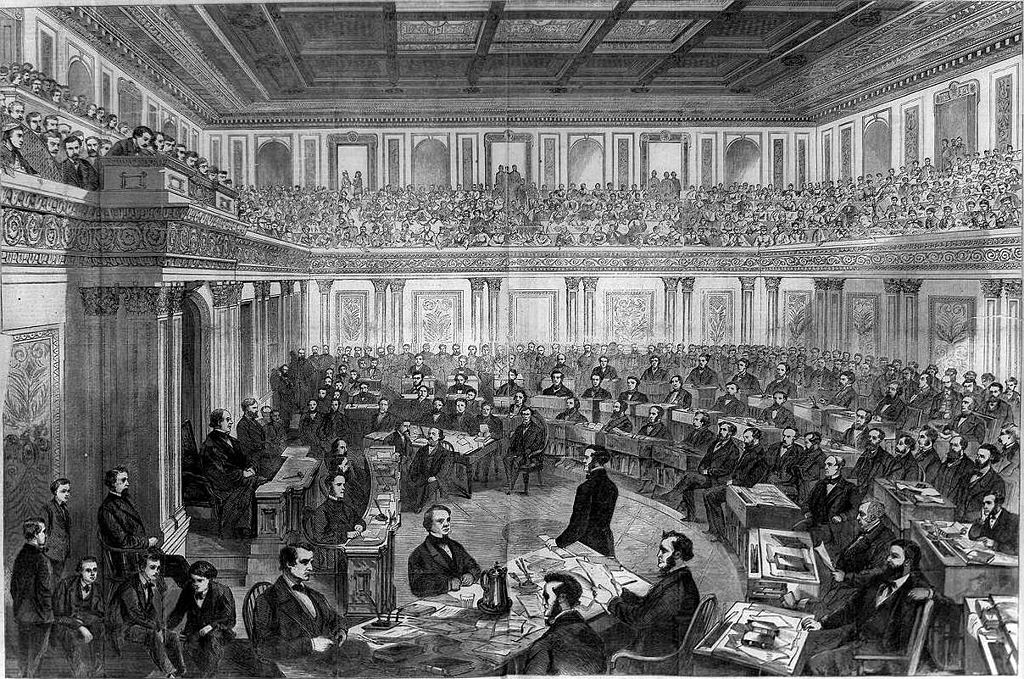Authors:
Historic Era:
Historic Theme:
Subject:
December 1956 | Volume 8, Issue 1


Authors:
Historic Era:
Historic Theme:
Subject:
December 1956 | Volume 8, Issue 1

Reconstruction after the Civil War posed some of the most discouraging problems ever faced by American statesmen. The South was prostrate. Its defeated armies straggled homeward through a countryside desolated by war. Southern soil was untilled and exhausted; southern factories and railroads were worn out. The four billion dollars of southern capital invested in Negro slaves was wiped out by advancing Union armies, “the most stupendous act of sequestration in the history of Anglo-American jurisprudence.” The white inhabitants of eleven states had somehow to be reclaimed from rebellion and restored to a firm loyalty to the United States. Their four million former slaves had simultaneously to be guided into a proper use of their new-found freedom.
For the victorious Union government there was no time for reflection. Immediate decisions had to be made. Thousands of destitute whites and Negroes had to be led before long-range plans of rebuilding the southern economy could be drafted. Some kind of government had to be established in these former Confederate states, to preserve order and to direct the work of restoration.
A score of intricate questions must be answered: Should the defeated southerners be punished or pardoned? How should genuinely loyal southern Unionists be rewarded? What was to be the social, economic, and political status of the now free Negroes? What civil rights did they have? Ought they to have the ballot? Should they be given a freehold of property? Was Reconstruction to be controlled by the national government, or should the southern states work out their own salvation? If the federal government supervised the process, should the President or the Congress be in control?
Intricate as were the problems, in early April 1865, they did not seem insuperable. President Abraham Lincoln was winning the peace as he had already won the war. He was careful to keep every detail of Reconstruction in his own hands; unwilling to be committed to any “exclusive, and inflexible plan,” he was working out a pragmatic program of restoration not, perhaps, entirely satisfactory to any group, but reasonably acceptable to all sections. With his enormous prestige as commander of the victorious North and as victor in the 1864 election, he was able to promise freedom to the Negro, charity to the southern white, security to the North.
The blighting of these auspicious beginnings is one of the saddest stories in American history. The reconciliation of the sections, which seemed so imminent in 1865, was delayed for more than ten years. Northern magnanimity toward a fallen foe curdled into bitter distrust. Southern whites rejected moderate leaders, and inveterate racists spoke for the new South. The Negro, after serving as a political pawn for